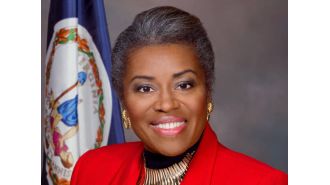Parents Gave Up Custody of Their Children to Help Them Get Financial Aid. Now, Some Are Abandoning That Idea.
Some families are frustrated about a public backlash, saying what they did was legal. They say the real problem is the cost of higher education.

Amid state and federal scrutiny as well as a public backlash, more than a half-dozen suburban Chicago families who had recently gone to court to give up guardianship of their college-bound teens to qualify for financial aid they wouldn’t otherwise receive are now quietly letting their cases lapse.
Though some families remain unapologetic about their use of a practice that had gone largely unnoticed until three weeks ago, they say the real issue is not that they tried to take advantage of a legal loophole but the exorbitant cost of higher education.
“A lot of families are afraid to say what they are thinking,” said one mother, whose son’s case closed last week when the family decided not to pursue it. “They have OK incomes. But having a good income does not make you able to pay for college. I would have to not drink or eat to pay for my two boys.”
She, like other parents, agreed to speak about their cases on the condition of anonymity.
One Northbrook mother said she had been mulling guardianship but feels it’s no longer an option.
“I said, ‘Is that off the table?’” she said she asked the college consultant at the center of the guardianship scandal. “She goes, ‘I don’t think … any judge in Illinois would sign off on anything.’”
Last month, ProPublica Illinois reported that almost four dozen families from affluent suburbs in Lake County had gone to court to turn over legal guardianship of their children to a relative or friend, typically a few months before the children turned 18. By doing so, the teens could then declare themselves financially independent and apply for need-based federal, state and university aid without their parents’ income being taken into account.
ProPublica Illinois has since identified about a dozen more families in McHenry, Cook and Will counties who filed similar guardianship petitions since 2017. Among them was the family of a 17-year-old who lived with his parents in suburban Long Grove. Four days after a Lake County judge denied their petition last month, they refiled the case, naming a different guardian, in neighboring McHenry County. The family said it was in their son’s best interest to “obtain independent student status in order to qualify for financial aid necessary for the minor to attend a state college” and, eventually, become a doctor, court records show.
But Judge Michael Chmiel, who had approved at least nine other guardianship petitions for college-bound students, questioned the move after learning the parents would continue to provide their son financial support.
“So it’s a charade?” he asked attorney Nina Neuber of the Kabbe Law Group in Naperville, which has handled about half of the 59 petitions identified by ProPublica Illinois from Chicago’s suburbs.
“No, your honor. It is not a charade,” Neuber replied, according to a transcript of the July 16 hearing.
But Chmiel remained skeptical.
“I’m challenged by this practice of a parent giving up parental rights for no reason other than an alleged attempt to qualify the kid somehow for financial aid, but yet the parent is still providing financial aid,” Chmiel said. “It doesn’t sound right to me. It just doesn’t.”
Other officials also have been troubled by the practice. The University of Illinois at Urbana-Champaign’s director of undergraduate admissions called the guardianships a “scam,” while federal and state officials have opened investigations. The U.S. Department of Education’s inspector general has recommended modifying the language on financial aid forms so students in guardianships who receive medical and financial support from their parents don’t qualify as independent.
State lawmakers held a hearing over the matter and discussed possible reforms, from changing the guardianship laws to new regulations for college consultants. The Wall Street Journal has also reported on this practice.
Families involved in the questionable guardianship cases live in some of the most affluent suburbs of Chicago, including Lake Forest, Libertyville and Deerfield. The parents work as lawyers, doctors, technology specialists, entrepreneurs, teachers and real estate agents.
It’s impossible to know if the families are struggling financially. Some live in homes worth more than half a million dollars, records show. A handful have declared bankruptcy in recent years.
Many appear to have been directed to guardianships by the same college consultant, Lora Georgieva. The Bulgarian immigrant has worked in the industry for close to a decade and, in 2013, launched her own firm, Destination College, state records show. Her website, which includes an image of a graduation cap with $100 bills spilling out of it, describes some of her services as “strategies to lower tuition expenses.”
In an interview this week, Georgieva said she has done nothing illegal or unethical but has worked hard to help middle-income families who find it a financial struggle to send their children to college.
She pushed back on the perception that her clients are all wealthy. In the interview and in a three-page statement, she said her clients earn between $35,000 and $180,000 a year, and some are still paying off their own student loans. Many of the families have more than one child they plan to send to college, she said; court records show that at least six of the families involved in the guardianships had filed petitions for siblings.
Two families said they paid Georgieva around $4,500 to $5,000 for her services. Several families, including one that had not gone through with a guardianship change, said they signed nondisclosure agreements. Georgieva said the agreement is meant to protect her unique process of helping students and their families find the right college, write admissions essays and explore financial strategies, including the guardianship option.
Not all of her clients pursue that option, she said, and “nobody was pressured into using it.” Georgieva said “some people, out of being desperate, they acknowledged the fact that they need it. Some people said, ‘We have enough money to pay for college, we don’t need that or don’t feel comfortable with it.’ It is up to the families to decide whether to do it.”
For now, Georgieva said, she will stop recommending guardianship petitions to her clients, although she has gotten phone calls from families interested in pursuing that strategy. “The news that broke, you guys opened the eyes of a lot of families of what they can do,” she said. “If legislators are not going to do this quickly to close that” loophole, then families in Illinois and elsewhere will pursue it.
However, she also urged broader reforms, including increasing the amount of the federal need-based Pell grant, currently up to $6,195, and lowering the age that children are considered financially independent from their parents, now at 24.
Before providing any of her clients with information about guardianships, Georgieva said she spoke with a representative from Federal Student Aid, an office of the U.S. Department of Education, and several lawyers who are her clients “who all confirmed this is a valid legal approach.” Department of Education officials said Tuesday they were unaware of any conversations with Georgieva about guardianship.
They said that the laws governing “dependency status were created to help students who legitimately need assistance to attend college” and that “those who break the rules should be held accountable.”
While federal financial aid isn’t limited, state need-based grants in Illinois are awarded on a first-come, first-served basis. Some 82,000 students qualified for the state funds last year but did not receive them because the money ran out.
Several families who spoke with ProPublica Illinois said guardianship was one of many strategies that Georgeiva presented them.
“It was introduced as a program that helps people like us. We weren’t looking at it as something unethical,” said one mother, who successfully petitioned to transfer guardianship of her daughter to a family friend last year.
She said she and her husband both work and “by no means do we live in a lavish home.”
Another parent, from a wealthy community in southwestern Lake County, said she hired Georgieva after interviewing several college consultants. “I did graduate from college, and so did my husband,” she said. “But the whole process changes every year. Why not get the best results? My kids are doing very good in school. I want them to do the best.”
She said Georgieva reviewed her son’s college application essays and recommended strategies to become a more attractive candidate, such as volunteer work.
The woman said she and her husband both work, earning more than $200,000 a year, to support their two teenage sons. The family is among those who have allowed their guardianship petition to lapse following the reports about the tactic.
“Why should the kids of people who work hard and are busy every day and have no time to see their kids, why are their kids being punished?” the Lake County mother asked. “They will have to take huge loans and not be able to pay.”
Both of her sons want to become doctors. The guardianship strategy may have helped them avoid hundreds of thousands of dollars in student loan debt, she said. That now seems inevitable.
“I don’t want to be discouraging them, but I’m looking at this and thinking, ‘I have to support them all of their life?’” she said.
She worries her sons will get “stuck doing something they don’t like,” perhaps attending community college and working in fast food if they can’t afford to become doctors.
“I thought they encouraged kids in school to do what they have a passion for,” she said. “Do we have to kill a passion in our kids?”
Another one of Georgieva’s clients, the Northbrook mother who worried guardianship was no longer an option, said “something resonated” when they met with the college consultant in the spring of 2018. The family had attended a number of free college planning sessions that focused on wealth management or gaining admission to elite universities. Nobody spoke as plainly as Georgieva about the high costs of college.
The family has struggled financially, said the woman, who spoke to ProPublica Illinois on Georgieva’s recommendation. She and her husband both lost their jobs, forcing them to go through their emergency fund. They borrowed money and tapped into their retirement and children’s college savings, she said.
Eventually, she found work. Then she said her husband suffered a stroke, requiring medical care around the clock. He remains in a nursing home. She said she sold their house and moved into a rental property with her two children. When she met Georgieva, her oldest son was enrolled in community college and her daughter was a high school sophomore.
Georgieva charged the family about $4,500 for her full package of services, letting them pay in installments. She helped the daughter identify what kind of career matched her interests, told her to focus on improving her ACT scores and encouraged her to take an academic enrichment program.
She assured the family there were ways to finance a higher education, including scholarships and loans. Then she mentioned the possibility of giving up guardianship, perhaps to the girl’s aunt, who had been supportive during the family’s difficulties. Her initial reaction was surprise. “I’m like, ‘Oh my God … I’m not emancipating my child,’” she recalled saying. “I had, like, a million questions.”
But as Georgieva explained how it worked, she warmed to the idea. If her daughter was considered financially independent, then her salary from her job in marketing — more than $100,000 a year, she said — wouldn’t be taken into account.
“Because of how the system is structured they’re telling me I make too much money,” she said. “But I don’t have $30,000, $40,000 or $50,000 sitting [around].”
Before they made a decision on whether to pursue guardianship, the scandal made national headlines. Their Plan A was off the table. Now they’re scrambling to figure out how they will pay for college.






